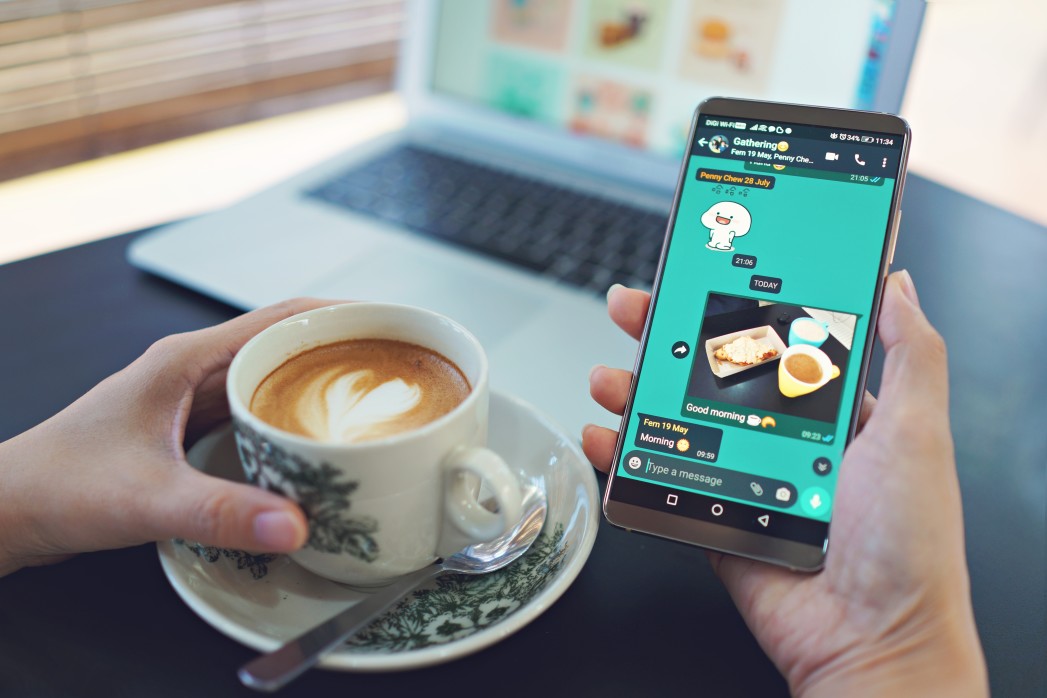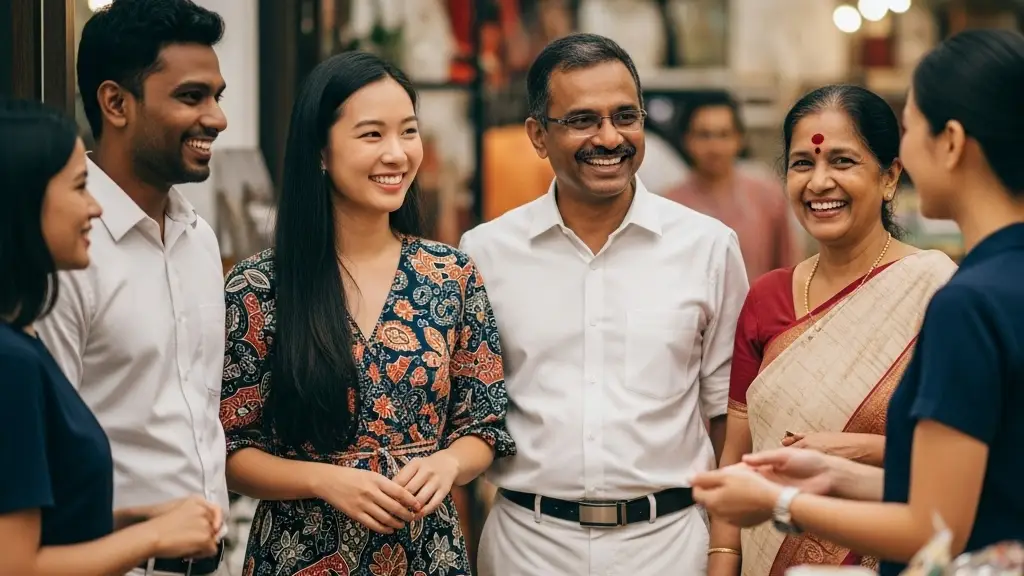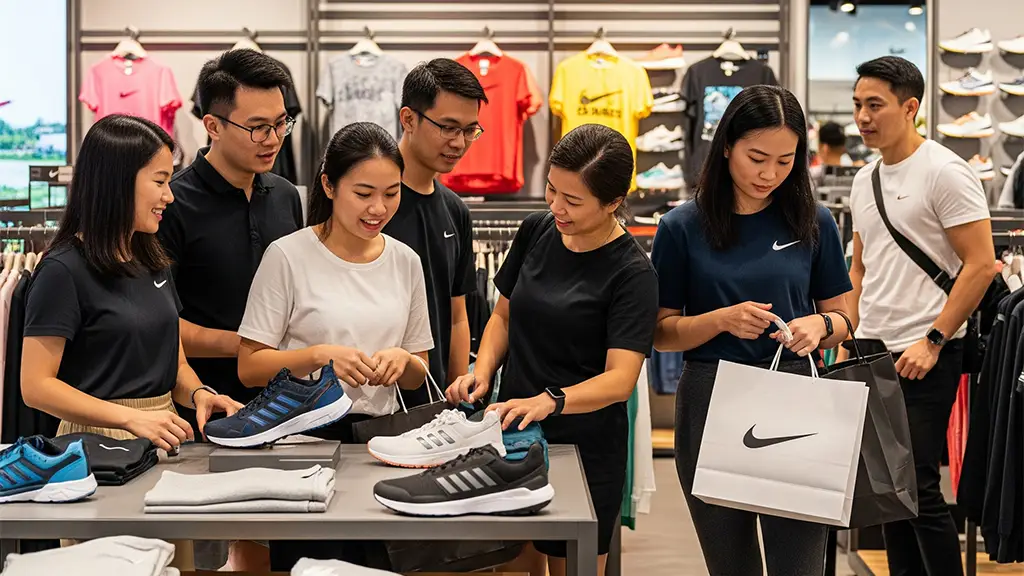No products in the cart.
In a world where customers have endless options at their fingertips, winning a sale isn’t enough. The real business growth lies in repeat purchases, turning first-time buyers into loyal customers. But what actually makes people come back?
In this article, we explore the psychological drivers behind customer loyalty, and how understanding them can help small businesses create deeper, more profitable customer relationships.
Contents hide
Why Customer Loyalty Matters More Than Ever
Customer loyalty isn’t just a buzzword, it’s a business strategy that leads to sustainable growth. Studies have shown that:
- Acquiring a new customer costs 5–7 times more than retaining an existing one.
- Loyal customers spend 67% more on average than new ones.
- A 5% increase in customer retention can boost profits by 25–95% (Bain & Company).
In short, when customers come back, your business becomes more profitable, stable, and resilient.
1. Trust Is the Foundation of Loyalty
Before anything else, customers need to trust your brand. This trust is built over time through:
- Consistent product or service quality
- Transparent communication (e.g., clear pricing, no hidden charges)
- Reliable customer service
Psychological insight: Trust reduces uncertainty. In a competitive market, customers prefer sticking with brands they know will deliver.
🛠️ Action Tip: Be consistent. Whether it’s your service quality, website messaging, or refund policy, make sure your customers know what to expect.
2. Emotional Connection Fuels Repeat Purchases
While logic drives the first purchase, emotions drive loyalty. People return to brands that feel right to them, those that resonate with their values, personality, or lifestyle.
Think about brands like Apple or Muji. Their fans don’t just like the products; They feel a sense of belonging.
Psychological insight: Emotional attachment creates a sense of identity and familiarity, making customers feel good about choosing you again.
🛠️ Action Tip: Infuse your brand with personality. Whether it’s through storytelling, design, or social media presence, show your customers what your business stands for.
3. Positive Experiences Create Habits
Good experiences are memorable. A seamless checkout, friendly interaction, or unexpected reward makes people associate your brand with positive feelings.
Over time, this becomes habitual and habits are hard to break.
Psychological insight: The brain rewards positive patterns by reinforcing them. Repeat positive experiences trigger dopamine, encouraging repeated behavior.
🛠️ Action Tip: Map your customer journey and identify points of friction. Aim to make every touchpoint, from website to post-sale support, smooth and enjoyable.
4. Personalization Builds Relevance
When a business remembers a customer’s name, preferences, or purchase history, it shows that the relationship matters.
Psychological insight: Personalisation triggers a feeling of being “seen” and valued, a powerful motivator for returning.
🛠️ Action Tip: Use your POS or CRM tools to track purchase history and personalize follow-ups or offers. Even a simple birthday message can build goodwill.
5. Reciprocity: Give to Receive
According to the rule of reciprocity in psychology, when someone does something for us, we feel inclined to return the favor.
Small gestures like loyalty rewards, thank-you messages, or exclusive deals make customers want to stick around.
🛠️ Action Tip: Offer small tokens of appreciation, even if it’s a surprise discount or an invite to an exclusive event.
6. Social Proof Builds Confidence
People trust other people. Reviews, testimonials, and user-generated content all serve as reassurance for hesitant buyers.
Psychological insight: Social validation reduces decision anxiety and strengthens brand perception.
🛠️ Action Tip: Ask happy customers to leave reviews, and showcase them on your website or social pages. Bonus: This helps with SEO too!
7. Loyalty Programs Reinforce Desired Behavior
Structured rewards such as those which use points, tiers or referrals, give customers tangible incentives to return.
Psychological insight: Gamification taps into the brain’s reward system. People enjoy tracking progress and earning benefits.
🛠️ Action Tip: Implement a simple loyalty program. With tools like EPOS Marketing AI, you can automatically reward repeat customers via WhatsApp, no extra app needed.
Loyalty Starts with Understanding
Customer loyalty isn’t built on discounts alone. It’s the result of trust, emotional connection, habit, personalization, and mutual respect. All rooted in human psychology.
By understanding what truly motivates your customers to return, you can craft experiences that go beyond transactions and turn one-time buyers into lifelong fans.
Start by choosing a loyalty platform that offers:
- AI-powered analytics
- Customer segmentation tools
- Automated offers and campaigns
- Integration with POS or CRM
If you’re a small business owner in Singapore, EPOS Marketing AI helps you create automated, personalized loyalty campaigns that reward your customers without any extra effort. Integrated directly into your POS, it:
- Tracks repeat customer behavior
- Sends personalized WhatsApp messages
- Rewards automatically with no extra app or card
Transform your business today
By understanding your customers better and engaging them in more personalized ways, AI can help turn one-time buyers into long-term loyal fans.
Whether you’re running a café, salon, retail shop, or service business, now is the time to explore how AI can elevate your loyalty strategy. Keep your customers returning with the EPOS Marketing AI, powered by Whataspp! Contact us today to transform your business with the right POS.
We provide modern POS solutions that are designed to cut your losses and help your business grow! Furthermore, SMEs are eligible for up to 80% support for the adoption of EPOS Pre-Approved Solutions under the IMDA SMEs Go Digital programme. Last but not least, we also offer Digital Marketing Solutions for SMEs seeking business growth, providing tailored marketing strategies catered to the unique needs of each business.
👉 Ready to turn your customers into regulars? Fill in your details below and we will get in touch with you as soon as possible!
Was this article helpful?
YesNo





